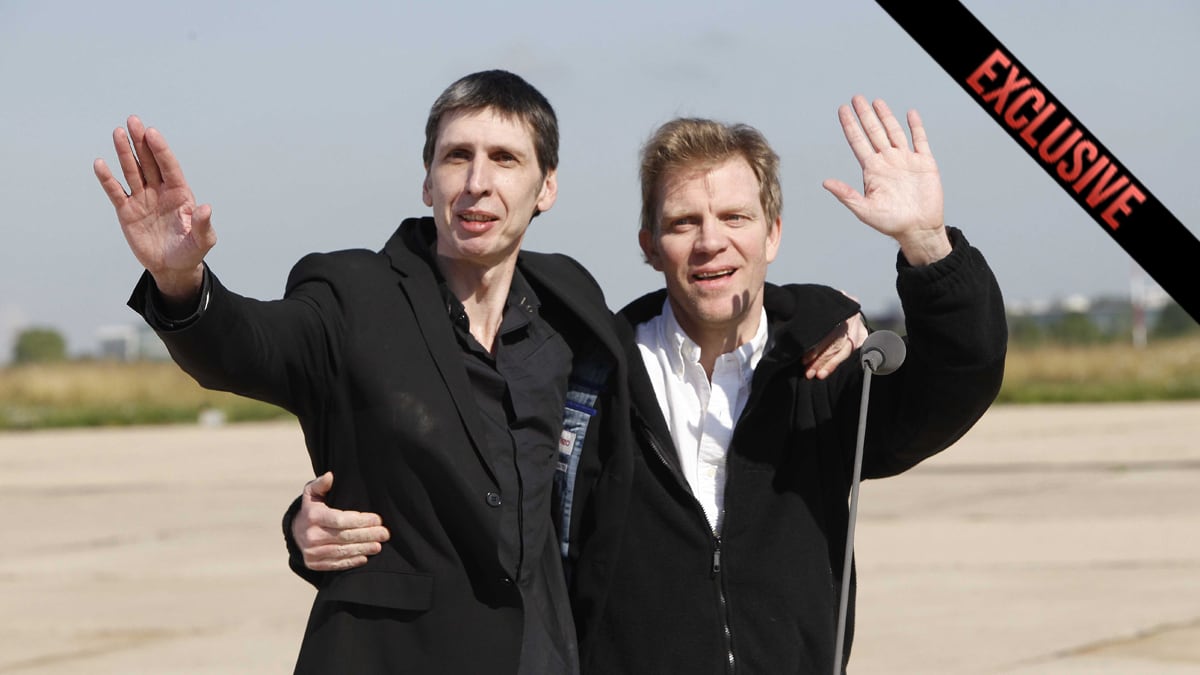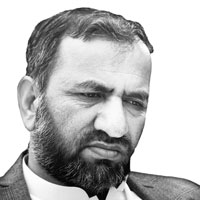After an 18-month ordeal as captives of the Afghan Taliban, two French journalists were suddenly released this week—but why? France’s foreign minister, Alain Juppé, adamantly denies that his government paid any ransom. The Taliban’s spokesman says the two hostages, television journalists Stéphane Taponier and Hervé Ghesquière, were freed in exchange for “a number of mujahedin commanders.” But according to exclusive information revealed to The Daily Beast, neither version is the whole truth. “A big bundle of dollars was the deal—not the release of prisoners,” says a member of the Taliban's ruling council, the Quetta Shura, who was privy to the long, drawn-out negotiations. “The amount was in the millions [of dollars.]” His account is backed up by a senior Afghan government official, who says the ransom was some $15 to $20 million and was paid to the Taliban in Pakistan late last month. (The official cannot be named because of the sensitivity of the subject.) “We are happy,” says the Quetta Shura member, “and they [the French] are happy.”
As far as the Taliban are concerned, the payoff couldn’t have come at a better time. The insurgency is struggling in the face of big American gains on the battlefield in southern Afghanistan, the Taliban’s homeland.
“This deal is very important to us,” says a senior Taliban intelligence officer, declining to be named for security reasons. “It was struck at the right time, when the Taliban are looking for more money for the cause.” The Quetta Shura official says the negotiations with the French were tortuous. “It was up and down,” he says. “One minute we were saying ‘Let’s kill them’; the next, ‘Let’s make a deal.’” Such deals are a key part of the insurgency’s finances. Over the past few years, the Taliban have reaped tens of millions of dollars by kidnapping foreign nationals—an Italian journalist, French aid workers, and 21 South Korean missionaries, among others.

Nevertheless, the Taliban’s initial demand was for the freedom of captured insurgents, not money. The Quetta Shura official says the ruling council “was always insisting on a prisoner exchange.” He says insurgent leaders produced a list of 50 Taliban commanders they wanted released. But that was impossible, French intermediaries kept telling the insurgents’ chief negotiator, Mullah Abdul Rehman Akhundzada (the head of the shura’s ransom-negotiating committee): Paris had no leverage with the Americans to obtain a prisoner release from the U.S. high-security lockup at Bagram Air Base, and Afghan President Hamid Karzai wasn’t going to argue with the Americans on that particular issue.
Instead, the French offered $10 million for the two men last December, a year after the two were captured, the senior Afghan government source says. The insurgents rejected the offer, continuing to demand a prisoner exchange while angling for more money. Finally, Paris raised its bid, and the deal was struck. Final approval came from the Taliban’s senior military commander, Abdul Qayyum Zakir, who had closely followed the negotiations.
The two journalists told reporters they were never mistreated, beaten, or bound – but in fact they were lucky to go home alive, and they can thank the patience shown by French officials. According to an Afghan source who has been in close contact with French officials ever since the two were first captured, French intelligence was largely aware of the various locations where the men were being held. But the French military decided nevertheless against mounting a rescue operation on its own or requesting a risky night raid by American commandos. Over the past two years, U.S. and British commando raids to free Western hostages have ended in tragedy. Linda Norgrove, an abducted 36-year-old British aid worker, died last October when a U.S. Special Operations rescue attempt went sour. One of the commandos mistakenly threw a grenade into the room where she was being held hostage. In September 2009, New York Times interpreter Sultan Munadi was killed in the crossfire during a British commando raid that was launched to free him and New York Times reporter Stephen Farrell in northern Kunduz province. Farrell escaped unharmed. The French apparently reasoned that such daring raids were not worth the risk.The French journalists were lucky as well that their Taliban captor, Mullah Shafaq, decided not to move the men out of eastern Kapisa province, where they had been captured. There was talk of taking them to the Waziristan tribal area, across the border in Pakistan, for safety, but Shafaq rejected the idea. He didn’t want to risk the possibility that another Taliban commander or rival insurgents might try to grab the hostages along the way, for their own use. Once inside Pakistan, the hostages could have been seized by the Haqqani Network or Al Qaeda, thus cutting the Quetta Shura out of the action.Shafaq’s decision may have saved his hostages’ lives, or at least spared them from many more months of captivity. But even as he shuttled them from one location to another among the mountains of Kapisa province, they faced serious dangers right where they were. The insurgent forces of Gulbuddin Hekmatyar’s Hezb-i-Islami, a sometime Taliban ally that is active in Kapisa, also had their eyes on the two Frenchmen. According to a Hezb activist in Kapisa’s Tagab district, the group’s gunmen were hatching a plot to muscle the hostages away.According to the Hezb activist, a NATO operation almost found the hostages by chance just over a year ago. As the Coalition soldiers approached the village where the Frenchmen were temporarily being held, the captors’ armed guards fled, locking the small mud-brick house from the outside. The activist says the soldiers swept the village but didn’t check that seemingly abandoned house.The activist also claims that the hostage deal did free at least one jailed Taliban member. The activist identifies him as Ghazi Nurullah, a local sub-commander from Tagab who spent the past three years under a death sentence in Kabul’s notorious Pul-i-Charki jail. He’s just been released and is on his way to Pakistan, according to the activist.For the Taliban, patience had its rewards. “We know the longer we keep them, the more chance we have of getting a bigger ransom,” says the Quetta Shura official. He was certainly correct in this case.







